Major supermarket checkout move there’s no coming back from
An industry insider has shed light on the big supermarkets’ major checkout move, and what it means moving forward.
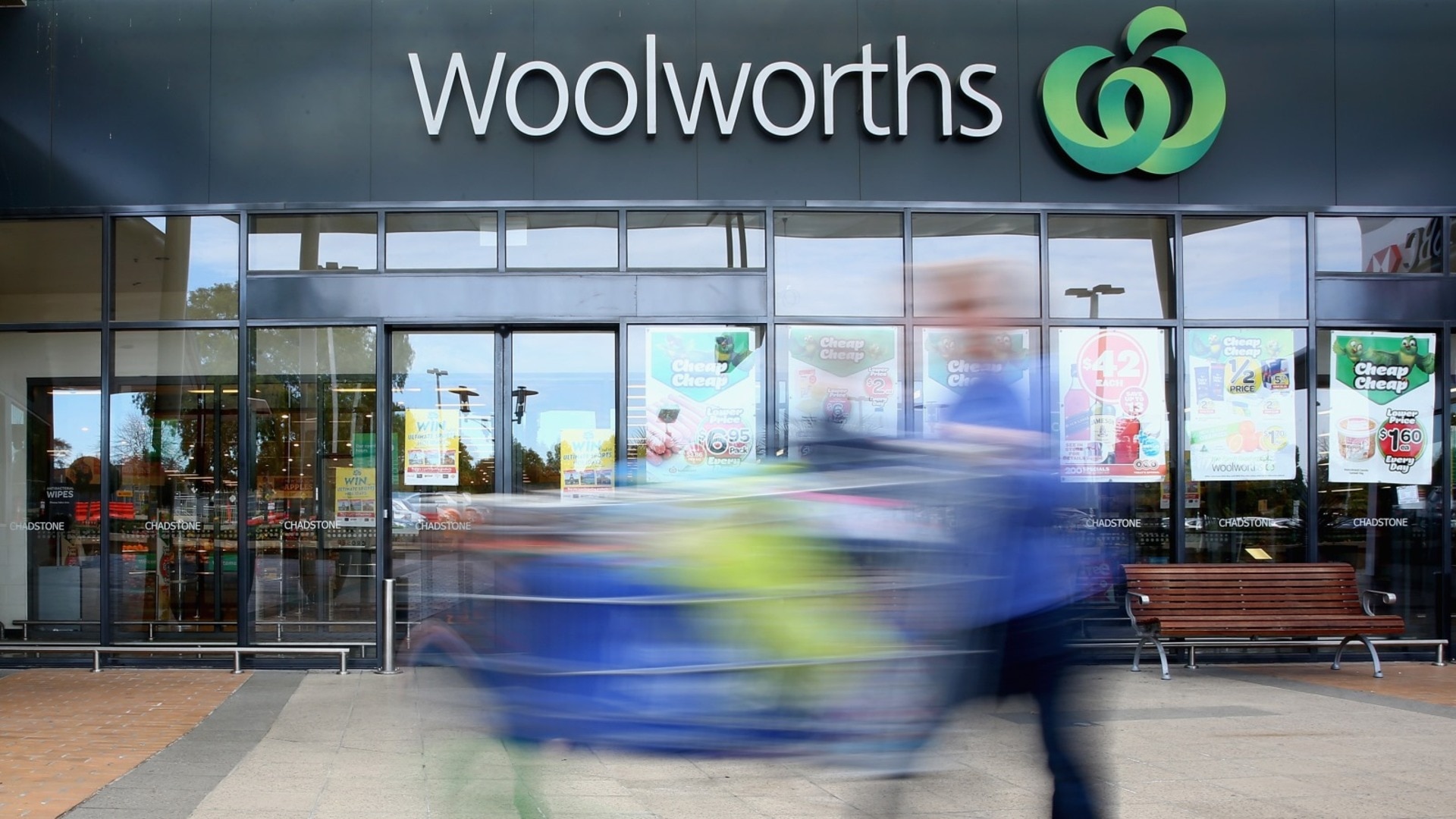
Lifestyle
Don't miss out on the headlines from Lifestyle. Followed categories will be added to My News.
It seems like the days of chatting with a human at the supermarket checkout will soon be behind us, as the Aussie giants show no signs of slowing down on digitally innovative alternatives.
Shoppers across the country have noticed a rapid shift towards self-service check-outs, with traditional staffed lanes quietly being reduced in stores.
Since self-service tills were rolled out in Coles in 2004 and Woolworths in 2008, the innovation has shown no signs of slowing down – with Covid only exacerbating the trend.
As shoppers masked up and sought less contact with others, self-service options boomed.
The rollout of smart trolleys is yet another recent development, with the major supermarkets unveiling new shopping carts that scan items on the go.
Woolworths rolled out its Scan&Go trolleys in Sydney last August, and Coles is now trialling AI-powered smart trolleys that allow shoppers to track their purchases in real time, skipping the queue.
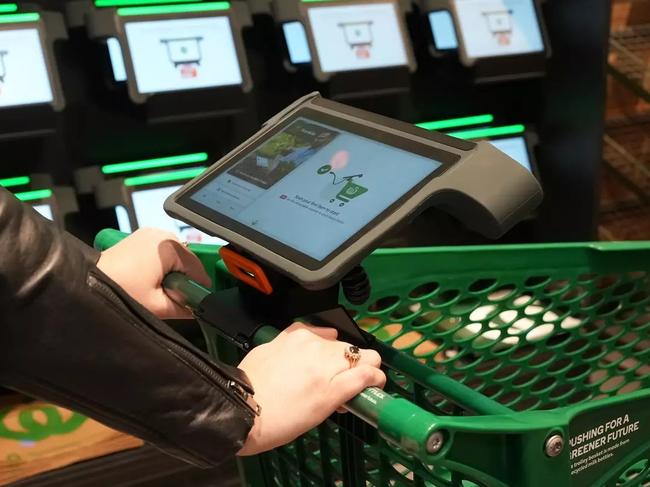
For many, these changes are hard to swallow, especially as the cost-of-living crisis drags on and people grapple with rising grocery prices.
Now, an industry insider has shed light on the decision, claiming it’s a calculated move to cut costs and boost margins, with fewer staff on the floor and more customers left to scan and bag their own groceries.
Nitika Garg, consumer behaviour expert and professor of marketing from UNSW, told Yahoo Finance that in the future, we’ll see far fewer people in retail in general.
“In Australia, we have some of the highest baseline wage rates in the developed world so it’s expensive for retailers (to employ checkout assistants),” Ms Garg told the publication.
“At first, those people would have been retrenched to different duties and been on the floor to help customers with the switch, but the companies have a long-term perspective. Ultimately, they recoup the benefits when customers learn how to operate the check-outs themselves.”
The switch to technology in supermarkets
However, a Woolworths spokesperson told news.com.au that the changes are about giving shoppers more choice, and can actually help people save money.
“We know some customers prefer to be served by a team member, and that’s why we always have a staffed checkout open at all times in our supermarkets,” a spokesperson said.
They said that the Scan&Go Trolleys have received “overwhelmingly positive” feedback from customers.
“Young families in particular in our trial stores have told us the Scan&Go Trolley is helping them balance their budget, as they can track their spend and save time by scanning and bagging as they shop,” they said.
“Scan&Go Trolleys complement our other options, including being served by a team member at an assisted checkout, using the self-service checkout, pick up via ‘direct to boot,’ or online delivery.”
They claimed that the new additions don’t come at the cost of employees: “Today, we employ more team members in our stores than ever before, helping us serve customers in a range of new ways, including hand-picking online orders for rapid grocery delivery and Direct to Boot”.
It is understood that these innovations have come about off the back of research that shows a shift in consumer buying habits.
Shoppers now have smaller basket sizes and a strong customer preference for a quicker and easier self-serve checkout experience.
For a basket with 20 items or less, 83 per cent of Woolworths customers now choose self-service check-outs.
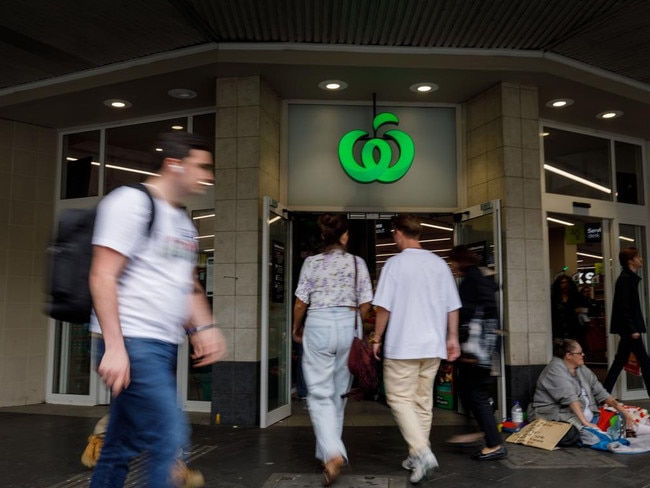
Coles, for its part, is also focused on offering a mix of register options, in response to consumer demand.
“Self-service check-outs are a great option for customers because they offer convenience and efficiency when shopping in our stores to help customers check out more quickly and pack their bags the way they like,” a spokesperson told news.com.au.
Due to this, they are the checkout of choice for more than 75 per cent of customers, with these numbers only expected to increase, according to the supermarket.
“Over the past three years, we have seen greater customer satisfaction and uptake in our self-service options – including our larger self-service check-outs with a conveyor belt,” they continued.
“As our supermarkets change to meet our customers’ needs, including growing demand for our Click & Collect and online shopping offerings, our team members’ roles in store are evolving too. We remain one of Australia’s largest employers – and we strive to make Coles a great place to work for our 115,000 team members right across Australia.”
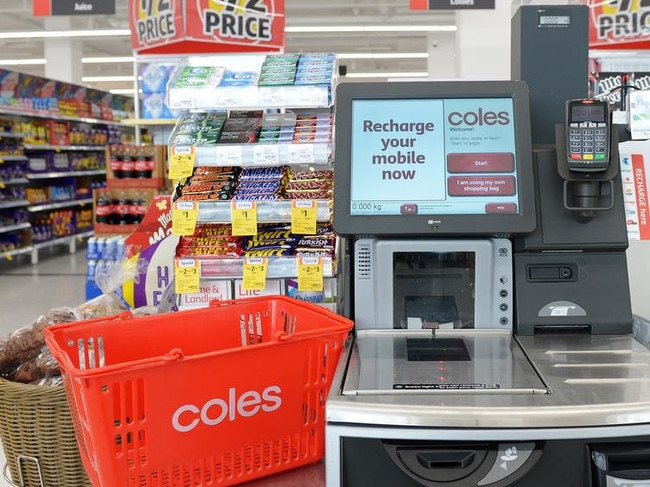
Scaling back overseas
However, with any innovations of this nature come concerns about retail crime, particularly shoplifting.
A recent survey revealed that seven per cent of people have stolen from a supermarket self-checkout, and the same number, or 1.4 million people, deliberately lied about what they had scanned.
But while countries like the US and UK have reported rolling back their self-service check-outs for this reason, Ms Garg believes it’s unlikely to happen here.
“Look at our minimum wage compared with the US,” she pointed out.
“Their threshold for loss is much lower than ours. Coles and Woolies are ramping up their tech instead. The surveillance has gone up, and it’s got to the point you can’t make a mistake now. The systems are developing really fast.”
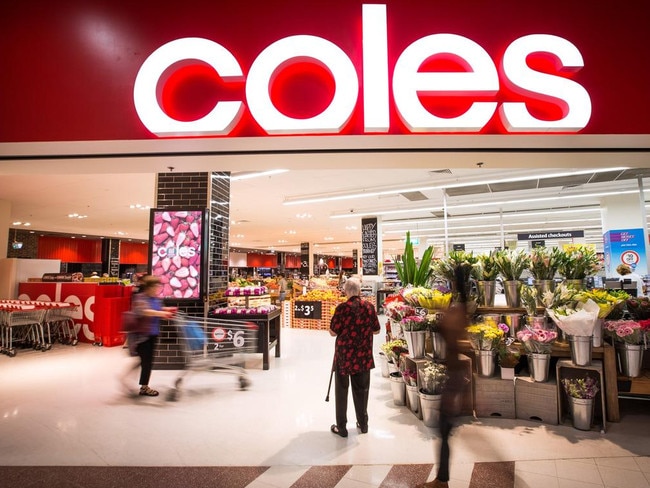
The future of retail
As technology advances and people become more capable at using it, the need for human workers in supermarkets will diminish, Ms Garg claimed.
“People like human contact and they want help, it’s why companies like Apple and JB HiFi train their sales force to be knowledgeable, but it’s not the same at grocery stores,” Ms Garg said.
“It won’t make or break your experience if (an assistant) doesn’t know where something is.
“People are more used to a lower-density sales force on the floor.”
She said that certain age groups will embrace this in the future, and for millennials, who use technology more and have a less traditional model of social interaction, it will become quite normal.
She predicts, “In future, there will be more tech and less customer service and we’ll see this pattern replicate across different industries”.
More Coverage
Originally published as Major supermarket checkout move there’s no coming back from





